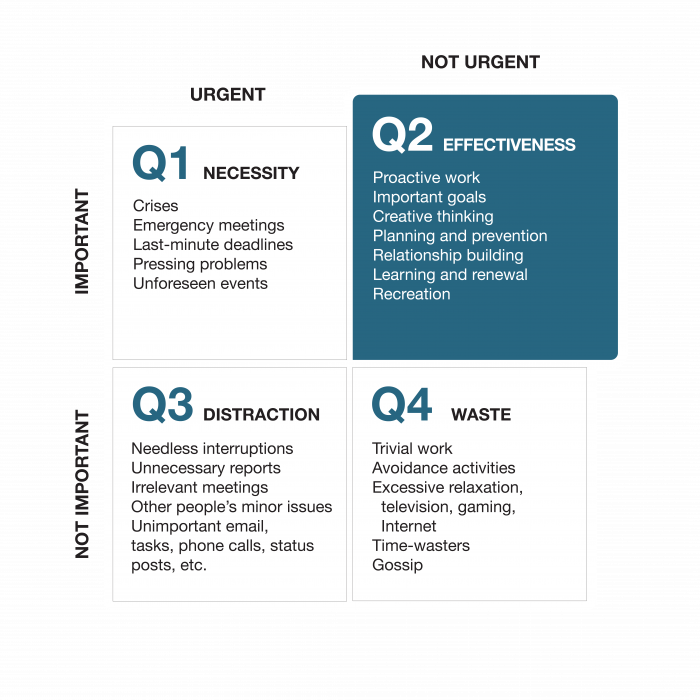The Habit of Personal Management
Habit 3: Put First Things First is the exercise of independent will toward becoming principle-centered. Habit 3 is the practical fulfillment of Habits 1 and 2. Habit 1 says, “You are the creator. You are in charge.” Habit 2 is the first mental creation, based on imagination, the ability to envision what you can become. Habit 3 is the second creation, the physical creation.
This habit is where Habits 1 and 2 come together. It happens day in and day out, moment-by-moment. It deals with many of the questions addressed around time management. But that’s not all; habit 3 is about life management as well—your purpose, values, roles, and priorities. What are “first things?” First things are those things you find of most worth. If you put first things first, you are organizing and managing time and events according to the personal priorities you established in Habit 2.
Free Guide
How Effective Leaders Get Results: 7 Ways to be More Proactive
Learn how taking initiative in small, specific ways can help you reach your goals — for your team, your career, and your life.
Free Event
Join us for a complimentary live online event on leadership
Learn how the powerful lessons of personal change from The 7 Habits can help transform the behaviors of your workforce.
The Four Quadrants of Time Management
We spend our time in one of four ways, depending on the two factors that define an activity: urgent and important. Urgent means it requires immediate attention. Urgent things act on us and are usually visible. For example, a ringing phone is urgent. Important things, on the other hand, have to do with results. It contributes to our mission, values, and high-priority goals. We react to urgent matters. Important matters that are not urgent require more initiative, more proactivity.


Putting first things first means organizing and executing around your most important priorities. It is living and being driven by the principles you value most, not by the agendas and forces surrounding you.
Weekly Planning
The 7 Habits of Highly Effective People
Focus and act on what you can control and influence instead of what you can’t.
Define clear measures of success and a plan to achieve them.
Prioritize and achieve your most important goals instead of constantly reacting to urgencies.
Collaborate more effectively by building high-trust relationships.
Influence others by developing a deep understanding of their needs and perspectives.
Develop innovative solutions that leverage diversity and satisfy all key stakeholders.
Increase motivation, energy, and work/life balance by making time for renewing activities.








